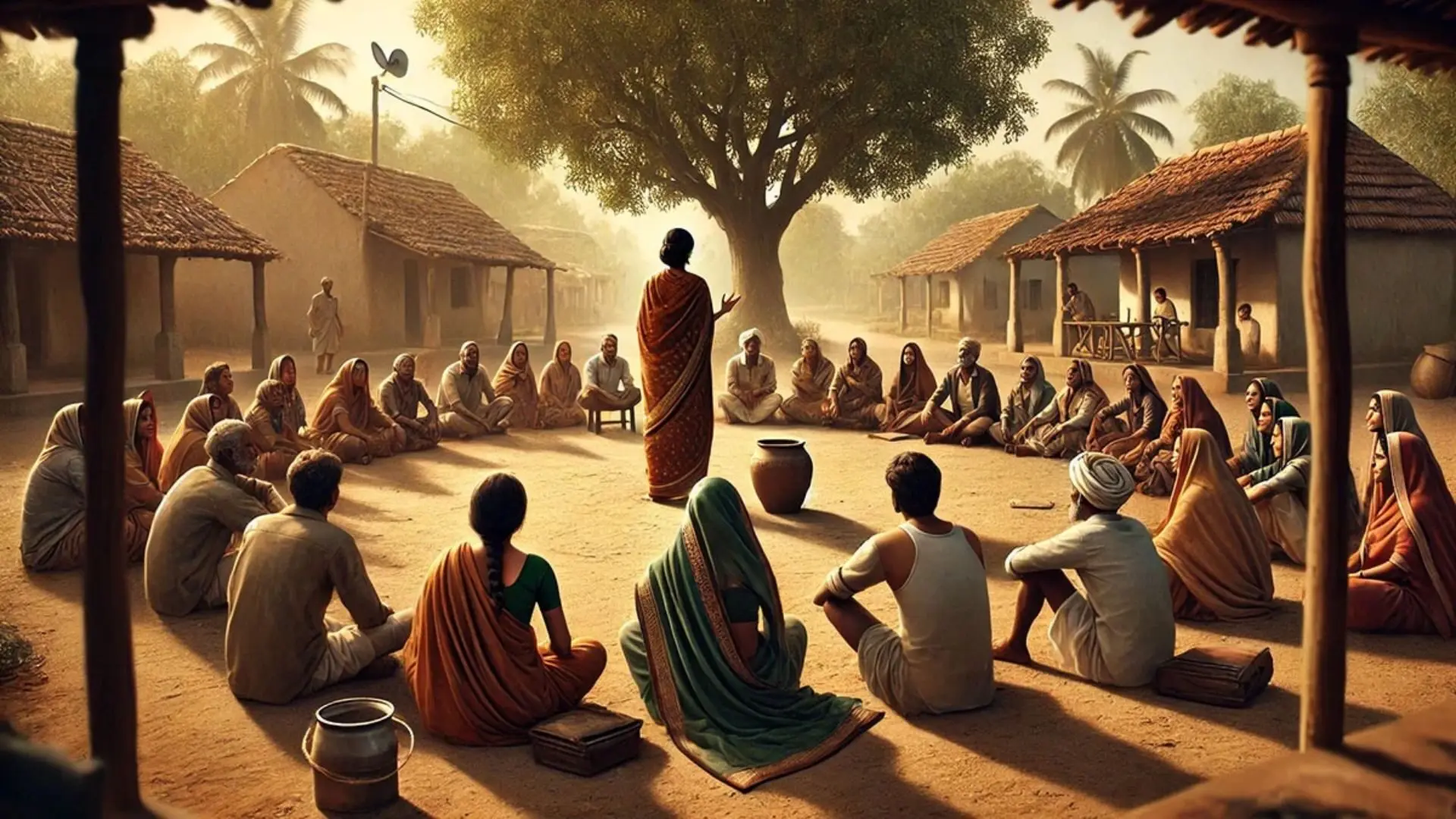A Hidden Barrier in Rural Governance
Panel Recommends Overhaul to End ‘Pradhan Pati’ Dominance in Panchayats: In many villages, women elected to lead local bodies often find themselves overshadowed by their husbands, who unofficially perform their roles. Referred to as the ‘Pradhan Pati’ issue, this widespread practice prevents Women Elected Representatives (WERs) from functioning independently. Even with 33% constitutional reservation, social structures remain steeped in male dominance.
Failing the Constitutional Vision
Despite women holding 46.6% of panchayat seats, actual power is often exercised by men in their families. This undermines the spirit of the 73rd Constitutional Amendment, which was designed to decentralize power and promote inclusion in local governance. Without genuine autonomy, women’s participation is reduced to a formality.
Expert Panel’s Report Sparks Attention
In response, the Ministry of Panchayati Raj formed a panel in 2023 to investigate and reform this trend. The committee’s findings, compiled in the report titled “Transforming Women’s Representation and Roles in Panchayati Raj Systems”, push for firm legal action in cases where elected women are sidelined. Still, the report notes that punishment alone won’t resolve the issue.
Reform Blueprint for Inclusive Leadership
To restore agency, the panel suggests gender-reserved roles within panchayat subcommittees and an Anti-Pradhan Pati Award for districts promoting independent women leadership. It recommends holding public swearing-in ceremonies during Gram Sabhas and appointing ombudspersons to handle women’s complaints and ensure accountability.
Digital Support for Women Leaders
Recognizing the power of innovation, the committee proposes VR modules that simulate administrative duties to boost women’s confidence. It also backs AI tools in regional languages to assist with day-to-day governance. The Panchayat Nirnay Portal will provide transparency, while official WhatsApp networks will help elected women address local concerns directly.
Challenging Deep Patriarchal Norms
The committee asserts that patriarchy—not just proxy leadership—is the root issue. Women who seek to exercise authority often face intimidation, exclusion, or threats. The report emphasizes the need for legal protection, financial independence, and peer mentoring networks, including regional groups of women leaders.
The Road to Authentic Leadership
The goal is not merely to punish male interference but to empower women to lead with confidence. The panel calls for civil servants to be trained in supporting female governance and urges collaboration with non-governmental and international organizations. Successful models like Kerala’s inclusive panchayats offer inspiration for replicable success.
STATIC GK SNAPSHOT
Panel Recommends Overhaul to End ‘Pradhan Pati’ Dominance in Panchayats:
| Topic | Details |
| Issue Addressed | Practice of Pradhan Pati replacing elected women leaders |
| Women’s Participation Rate | 46.6% of all panchayat members (15.03 lakh of 32.29 lakh) |
| Worst-Affected States | Uttar Pradesh, Bihar, Haryana, Rajasthan |
| Constitutional Basis | 73rd Amendment, passed in 1992 |
| Panel Report Name | Transforming Women’s Representation in Panchayati Raj |
| Tech Recommendations | VR simulations, AI support, Panchayat Nirnay Portal |
| Symbolic Interventions | Anti-Pradhan Pati Awards, Gram Sabha Oath Ceremonies |
| Social Provisions | Ombudspersons, Support Groups, Legal Safety Nets |
| Core Issue Identified | Entrenched patriarchy and lack of real female agency |
| Commissioning Body | Ministry of Panchayati Raj, established the panel in 2023 |








